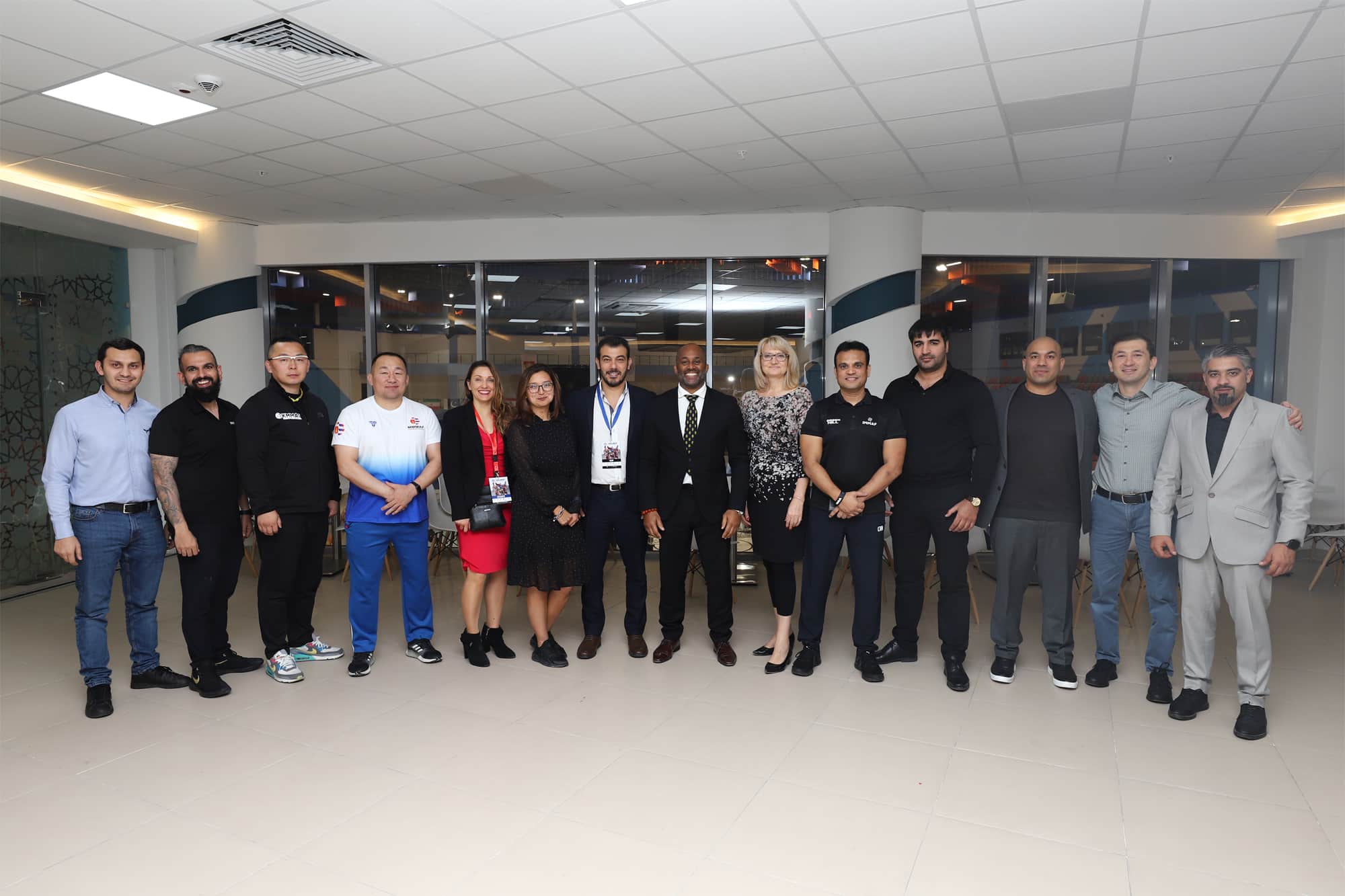Ahead of the official meeting of the Asian Mixed Martial Arts Federation to formalise its association, an informal meeting was called on the side-lines of IMMAF’s Asian Championships in Tajikistan last Friday 28 October by Vice-president, Davron Juraev.
Attendees were as follows:
- Mohammed Qambar – Asian MMA Federation President, Bahrain Federation President
- Davron Juraev – Asian MMA Federation Vice-president, Tajikistan MMA Federation President
- Bakhtiyor Khojaev – Vice President of Tajikistan MMA Federation President
- Iman Amirmohammadi – Iranian MMA Federation President
- Sharif Mohammad Bapu – India MMA President
- Kim Dae – Korean MMA Federation President
- Dashdavaa Gantumur – Mongolia MMA Federation General Secretary
- Muzaffar Rajabov – Uzbekistan MMA Association, Vice-president
- Zarina Najbieva – Kazakhstan MMA Federation, Official Representative
- Prem Kumar –, Malaysian Mixed Martial Arts Association, Official Representative for International Affairs
IMMAF - Kerrith Brown – IMMAF President
- Wissam Abi Nader – IMMAF Board Director for Asia
- Gosha Malik – IMMAF Member Services Director
The purpose of the meeting, chaired by Member Services Director Gosha Malik, was for the fostering of mutual understanding and shaping of priorities and next steps, as well providing a forum for the sharing of ideas, questions and concerns.
IMMAF President Kerrith Brown thanked the TAJMMAF for their hosting of the Asian Championships and updated attendees about IMMAF’s status in the GAISF recognition process. He outlined IMMAF’s vision for the development of a strong confederation for Asia, in which assets and knowledge would be shared between federations in the region in the development of regional talent and workforces in order to grow local competition circuits and sport infrastructure for MMA. Brown expressed his support for the MMA association recently formed under the Olympic Committee of Asia (OCA) and encouraged IMMAF’s Asian members to foster positive relationships with the OCA and to work to demonstrate their credibility, their track record, depth of knowledge and data.
IMMAF Board Director Wissam Abi Nader seconded Brown’s gratitude to the Asian federations, thanking them for their loyalty. He gave credit to the federations for their tremendous work, drawing attention in particular to the achievements of those from Tajikistan, India, Bahrain and Kazakhstan, encouraging them to collaborate to support the development of MMA in younger member nations.
AMMAF Vice-president and TAJMMAF President, Davron Juraev welcomed the members to Tajikistan. He addressed the structure of the Asian federation, its relationship with the IMMAF and that between regional members, as well as the need to establish clear rules of the game. He addressed expectations concerning the level of independence the new confederation might hold within the IMMAF infrastructure and in alignment with the international vision. He spoke of the crucial importance of federations listening to one other to develop a deeper mutual understanding. He noted the huge responsibility conferred on the new entity if it is to materialise into a dynamic force through which opportunities would be effectively harnessed between countries as they work towards a shared vision.
In response, IMMAF President Brown referred to IMMAF’s roadmap and strategic plan in steering the direction of travel for the new organisation.
AMMAF President Mohammad Qambar proposed the mapping of resources between member federations as a first task, citing India’s officials and Kazakhstan’s public relations expertise, and proposed the appointing of officials from within the member federations to lead on different administrative projects. He also emphasised the sourcing of funding as a priority.
Zarina Najbieva of the Kazakhstan MMA Federation invited members to participate in an upcoming Asian Open Championship in Kazakhstan. She spoke of the need to train regional officials and staff to enable the self-management of Continental competitions, and also proposed a coaches’ forum at international events to enable feedback.
The Agenda was then set for the next day’s formal meeting and signing of official documents.


